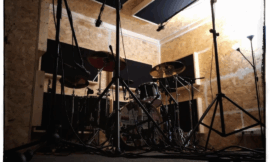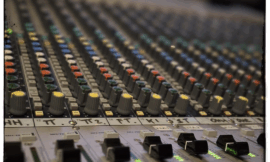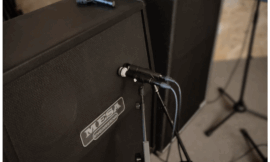Welcome to our series on preparing for a successful recording session. In this post, we’ll focus on collaborating with your producer and provide essential tips on how to communicate your vision effectively. A strong and productive relationship with your producer can greatly enhance the quality of your recordings and contribute to a more efficient and enjoyable studio experience.
Introduction
Recording in a studio is a collaborative and creative process, involving the input, expertise, and guidance of various professionals, such as producers, engineers, and musicians. Collaborating effectively with your producer is a crucial aspect of this process, helping you to achieve the best possible sound and meet your musical goals and expectations.
Understanding the Producer’s Role and Responsibilities
Creative Guidance and Direction
One of the primary responsibilities of a producer is to provide creative guidance and direction throughout the recording process. This can involve offering suggestions and feedback on song arrangements, instrumentation, and performances, as well as helping artists explore new ideas and approaches to enhance their material and achieve their desired sound.
Technical Expertise and Support
Producers also bring technical expertise and support to the recording process, ensuring that the project is executed at the highest level of quality and meets industry standards. This can involve selecting the appropriate recording techniques and equipment, overseeing the setup and operation of the studio, and addressing any technical issues or challenges that may arise.
Project Management and Coordination
In addition to their creative and technical roles, producers also serve as project managers and coordinators, overseeing the logistical and organizational aspects of the recording process. This can involve tasks such as scheduling studio time, coordinating with engineers and other personnel, and managing the project’s budget and timeline.
Communication and Mediation
Effective communication is a crucial aspect of the producer’s role, as they serve as a liaison between the artist, the engineer, and other parties involved in the project. Producers must be able to articulate their vision and ideas clearly, as well as listen to and address the concerns and feedback of others. In some cases, producers may also need to mediate conflicts or disagreements that may arise during the recording process, helping to maintain a positive and productive studio environment.
Tips for Effective Collaboration and Communication
Establish Clear Goals and Expectations
Before entering the studio, it’s essential to establish clear goals and expectations for the project with your producer. This can involve discussing the overall sound and style you’re aiming for, as well as any specific references or inspirations. Providing your producer with a clear and concise vision will help them understand your expectations and make informed decisions throughout the recording process.
Share Your Ideas and Preferences
In addition to establishing clear goals and expectations, it’s essential to share your ideas and preferences with your producer, and encourage them to do the same. This can involve discussing your thoughts and insights on song arrangements, instrumentation, and performances, as well as any specific techniques or approaches you’d like to explore or avoid. Be open and receptive to your producer’s ideas and suggestions, and willing to experiment and collaborate on new perspectives and insights.
Provide and Receive Constructive Feedback
Effective collaboration and communication involve providing and receiving constructive feedback, focusing on the strengths and areas for improvement of the project and the performances. To provide and receive constructive feedback, consider the following tips:
- Be Specific and Actionable: Offer clear and specific feedback on the project and the performances, focusing on the aspects that are working well and those that need further refinement or adjustment. Use constructive and supportive language, and avoid criticism or negativity.
- Be Open and Receptive: Be open and receptive to your producer’s feedback and suggestions, and willing to experiment and explore new ideas and approaches. Listen actively and attentively to their insights and guidance, and trust their expertise and experience to achieve the best possible results.
- Focus on the Vision and Goals: Keep the focus on the overall vision and goals for the project, and the steps and processes required to achieve them. Be flexible and adaptable in the face of challenges or setbacks, and willing to adjust your expectations and approaches as needed.
Trust Your Producer’s Expertise and Experience
While it’s essential to communicate your vision and preferences clearly, it’s also crucial to trust your producer’s expertise and experience, and be open to their guidance and suggestions. Producers bring a wealth of knowledge, skills, and insights to the recording process, and can greatly enhance the quality and impact of your recordings. Be willing to experiment and explore new ideas and approaches, and trust your producer’s ability to achieve the best possible sound and meet your musical goals and expectations.
The Benefits of a Strong and Productive Artist-Producer Relationship
Enhanced Creativity and Innovation
A strong and productive artist-producer relationship can lead to enhanced creativity and innovation in the recording process, as well as a more unique and memorable final product. By combining your ideas, insights, and expertise, you can explore new approaches and techniques, and push the boundaries of your material and sound.
Improved Performances and Recordings
Effective collaboration and communication with your producer can also greatly enhance the quality of your performances and recordings, helping you to achieve the best possible sound and meet your musical goals and expectations. Producers can provide valuable feedback and guidance on your performances, as well as select the appropriate recording techniques and equipment to capture your material in the best possible light.
A More Enjoyable and Rewarding Studio Experience
A strong and productive artist-producer relationship can also lead to a more enjoyable and rewarding studio experience, fostering a positive and supportive environment that encourages creativity, collaboration, and growth. By communicating and collaborating effectively with your producer, you can minimize stress and frustration, and maximize the satisfaction and fulfillment of the recording process.
Conclusion
Collaborating effectively with your producer is a crucial aspect of preparing for a successful recording session. By understanding the producer’s role and responsibilities, establishing clear goals and expectations, sharing your ideas and preferences, providing and receiving constructive feedback, and trusting your producer’s expertise and experience, you can achieve the best possible sound and meet your musical goals and expectations. Embrace the collaborative and creative aspects of the recording process, and enjoy the opportunity to work with a producer to capture your music at its best.
Stay tuned for more blog posts in our series on preparing for your recording session. We hope these tips and insights help you collaborate effectively with your producer and achieve a successful and enjoyable studio experience.





